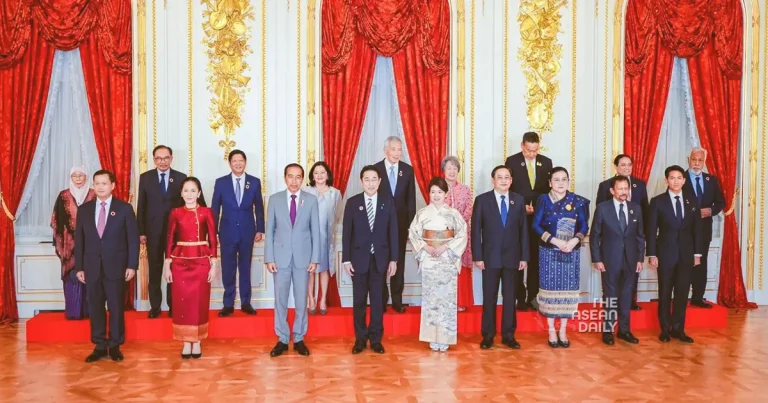16-12-2023 (TOKYO) Leaders from Japan and Asean nations convene in Tokyo from Dec 16 to celebrate the 50th anniversary of their relations, with an action plan outlining joint steps in regional stability, the economy, and social exchanges.
Japanese and Asean leaders will solidify their relationship as “trusted partners” during a three-day celebration in Tokyo marking 50 years of diplomatic ties. The commemorative summit, attended by nine Asean leaders, including Singapore’s Prime Minister Lee Hsien Loong, aims to reflect on the progress made over the past half-century and outline future collaboration.
An action plan, set to be unveiled on Dec 17, will detail specific measures in areas such as regional stability, economic cooperation, and social exchanges, according to a Japanese Foreign Ministry official. The summit comes as Japan and Asean elevated their relationship to the highest level of a Comprehensive Strategic Partnership in September.
Despite the current strong ties, the historical backdrop was different 50 years ago. In 1973, Japan established dialogue channels with Asean amid Cold War tensions, and protests ensued. However, the Fukuda Doctrine, outlining principles of non-militarization, “heart-to-heart” relations, and an equal partnership, set the foundation for the evolving collaboration.
Over the years, Japan has contributed significantly to Asean’s development, providing 20.25 trillion yen in overseas development assistance (ODA) from 1968 to 2022. This aid, ranging from technical cooperation to low-interest loans and grants, supported projects such as infrastructure development and, more recently, assistance during the Covid-19 pandemic.
The positive impact of Japan’s contributions is reflected in annual surveys, where Japan consistently ranks as Asean’s “most trusted” partner. However, as Asean emerges as a growing economic force, Japan is redefining its economic relationship, focusing on two-way innovation and respecting diversity.
The summit is expected to lead to closer cooperation in various domains, including supply chain resilience, digitalization, decarbonization, and maritime capacity-building. Environmental concerns will also be addressed through Japan’s Asia Zero Emission Community initiative, reflecting a commitment to achieving decarbonization, economic growth, and energy security.




